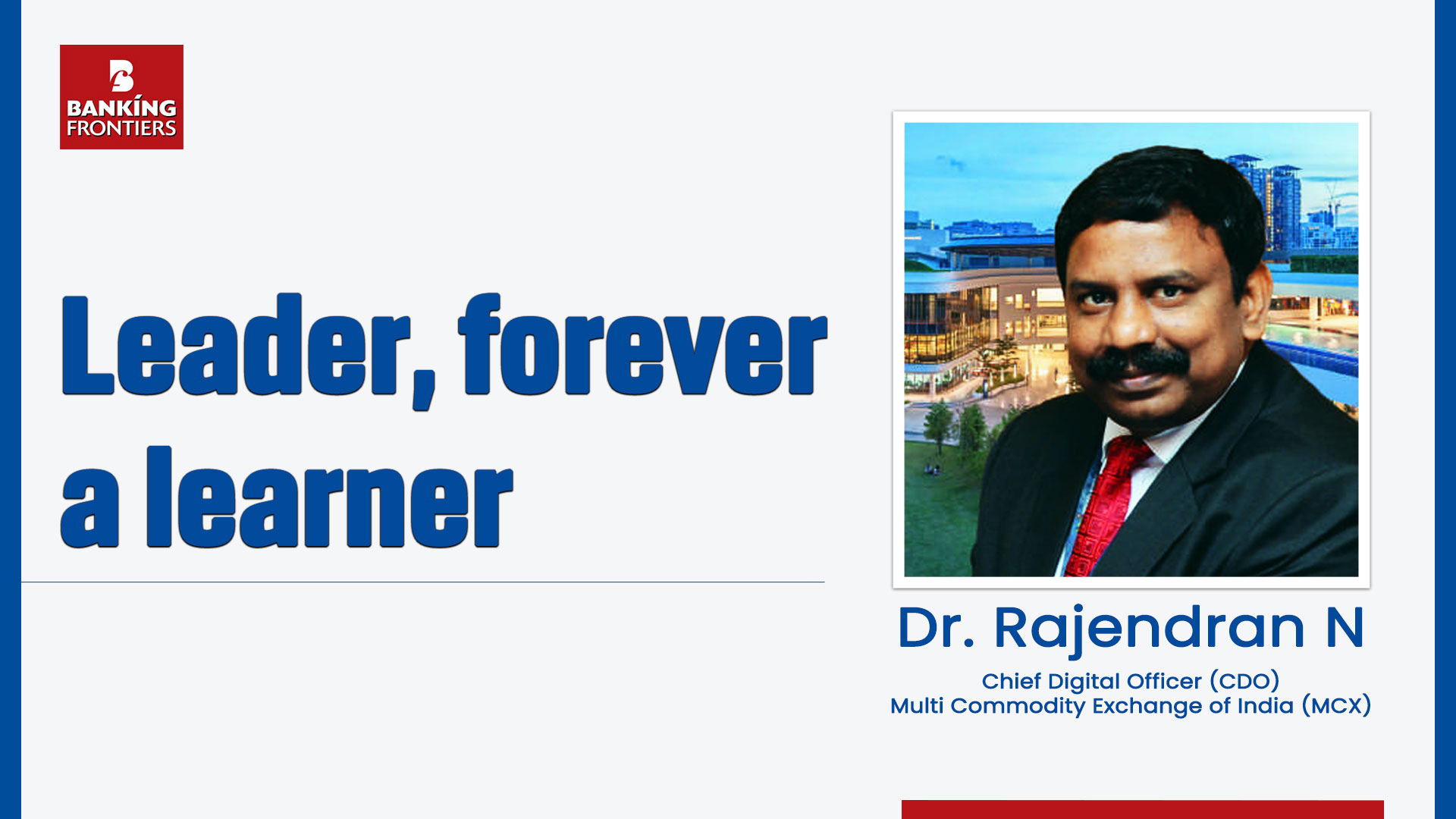Knowledge is critical in climbing the ladder of success. But beyond a point, it is about a certain set of skills:

A leader, they say can be one with natural leadership qualities or those with acquired leadership qualities. In the fast-paced digital era, it is important for people in the leading position to upskill themselves regularly.
Leadership skills vary from people to people. Every leader has a unique character. Some people might be successful in business but not in other spheres. What sets them apart is usually their openness to acquire new skills at every stage of their career.
New learnings and skillsets enable leaders to perform their duties more successfully, driving the new generation workforce and for Dr. Rajendran N, Chief Digital Officer (CDO) at Multi Commodity Exchange of India (MCX), professional trainings, courses from different global universities and being part of various forums have played a key role to hone his skills as he prepared himself for more complex and more demanding roles.
Dr Rajendran’s love for taking professional courses and training started in the initial stages of his career. Having obtained his doctorate in the Computer Science, he applied the mechanics across his job functions. The hunger to deep dive, self-analysis and self-evaluation propelled him to enroll for various educational programs in various spheres.
Dr. Rajendran has been one of the pioneers and has played a key or leading role in payments projects such as INFINET, CTS, NACH, Rupay Platform, UPI, etc. He says, “Migrating on new platforms is always a challenge. The process requires tough decisions. Migration come with challenges and tech glitches. Reading the team gearing up to handle it was both exciting and challenging.”
His roles as a Board Member and a CXO gave him a bird’s eye view of challenges which inculcated the desire to update his leadership capabilities.
He also finds seminars and conferences as valuable in giving new ideas and perspectives, and of course to meet new people.
One of the things that he realized in various interactions is the importance of diplomacy, it not telling things just as they are, but in a manner that takes into account who the decision is impacting and how does it affect that person’s feelings. Many western countries follows straight forward approach for feedbacks but In India it is different culture and most of the organization follows sandwich approach. Another thing he has learnt that even in technology, things not black and white, but various shades of grey.
He explains further: “As a technocrat, decisions are short, and finish with a Yes or No. It may not gel well with stakeholders. But the attitude may not go down well with all the stakeholders. As a person climbs up the corporate ladder, it is important to learn soft skills such as diplomacy and conflict management.”
Accordingly, Dr Rajendran set out in search of a suitable leadership program and finally chose an online 3-month program offered by National University of Singapore (NUS). This ‘Future Leaders Program’ is organized in collaboration with Great Learning. This program will have students from across the world, and that multi-cultural explore is another positive feature that Rajendran liked compared to several other courses.
He adds: “You meet many people from diverse backgrounds and geographies. The learning modules are interesting and aimed at integrating people of different nationalities into diverse groups, assigning tasks, encouraging group discussions and evaluating the process. The entire learning process is interactive and interesting.”
Highlighting the importance of organizational support in obtaining new trainings and certifications, Rajendran shares: “These trainings and courses cost money. Many organizations do invest on people training, and even nominate senior leaders for executive trainings. It is also important to self-search for relevant skills and domain knowledge upgrades. Such investments go a long way.”
He had the choice of both physical and online courses. He evaluated the pros and cons of both formats. “Physical programs create a larger impact. For example, if I am learning 5 hours online vs 30 mins physical, the latter will have a larger impact because it is completely focused. Online activities can be marred due to technical glitches, background disturbances, etc. However, online provides the flexibility of learning from remote environments.”
Be it online or the physical format, Rajendran warns that getting admission into prestigious universities is an arduous task. “Universities have admission criteria and filter candidates before enrolling them for the course.”
Rajendran summarizes how his skills evolution: “I can identify good leaders and good managers. Overall, it gives a lot of confidence.”







